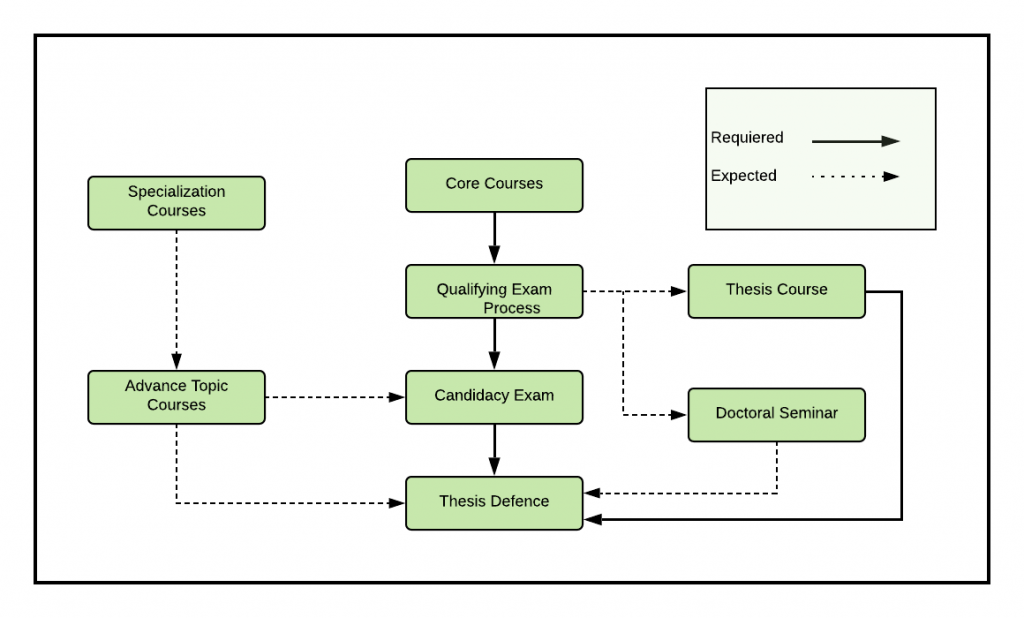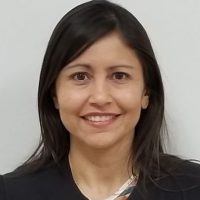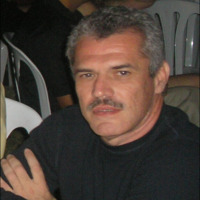CISE is a joint program between the Computer Science and Engineering Department and the Mathematical Sciences Department at UPRM.
Mission
Program Objectives
-Contribute to the reorganization and generation of the country’s computing infrastructure development policies preparing professionals at the -highest level.
-Prepare professionals at the highest level capable of contributing to the social and economic development.
-Develop professionals capable of contributing to education and research in computing and information sciences and engineering.
-Develop professionals capable of generating research and development initiatives in industrial settings.
-Develop professionals capable of working in interdisciplinary groups of scientific research and technology.
About the Program
Location
University of Puerto Rico at Mayagüez
259 Alfonso Valdés Cobián Blvd.
Luis Stefani Bldg., Office S-220
Mayagüez, PR 00681
787-832-4040, Ext: 5217
The students enrolled in the program must select and area of concentration. Currently the program offers two concentrations: Computer Science and Engineering and Scientific Computing.
The Concentration in Computer Science and Engineering is devoted to the study of the science of computation, computer algorithms and computing systems, and applications. It currently includes research subjects and high-level courses in databases, networking, parallel and distributed computing, computational signal processing, and bioinformatics.
The Concentration in Scientific Computing is devoted to the study of mathematical and statistical methods for the computer solution of problems in science and engineering. It currently includes research subjects and high-level courses in numerical methods, numerical analysis, statistics, computational statistics and the computer simulation and modeling of natural phenomena.
Each student must take a minimum of 57 credits distributed as follows:
- 9 credits in core courses (The core courses are Analysis of Algorithms, Foundations of Computing)
- 12 credits in electives in the area of specialization.
- 6 credits in advanced topics courses.
- 9 credits in elective courses outside the area of specialization (6 credits must be in the other area of specialization of the program).
- 3 credits in doctoral seminar.
- 18 credits in doctoral dissertation.
Curricular Sequence
(To view a course syllabus click on its title)
NOTE: This a partial list of courses. Other courses may apply according to specific student’s needs.
- ANALYSIS OF ALGORITHMS (COMP 6785) – Analysis of algorithms: graph algorithms, algorithms for classical problems in linear algebra. Integer and polynomial arithmetic, complexity, and NP-completeness.
- FOUNDATIONS OF COMPUTING (CIIC 6005) – Concepts and formal definitions of algorithmically solvable problems. Classification of problems by their computability in terms of the time and space required to solve them.
- COMPUTER SYSTEMS ARCHITECTURE (INEL 6009) –Fundamentals of the architecture and organization of computers. Concepts of high-level languages. Architectural support to the compilation process and to operating systems.
- PARALLEL COMPUTATION (II) (COMP 5055) – The use of supercomputers: parallel architecture, design of algorithms for scientific computation and their implementation with parallel multiprocessors, and performance analysis.
- HIGH-PERFORMANCE COMPUTING (COMP 6786) – Concepts and methods for the design, implementation, and evaluation of high- performance algorithms for large-scale scientific and technological problems in a multiprocessing environment.
- TOPICS IN COMPUTER SCIENCE (I) (COMP 6838) – Selected topics in Computer Science.
- STOCHASTIC SIMULATION (I) (ESMA 5015) – Basic methods of simulation, modeling of complex systems, simulation languages, generation of random numbers, model validity, analysis of solutions, variance reduction techniques, and the design of experiments.
- APPLIED REGRESSION (II) (ESMA 6205) – Simple linear regression, multiple linear regression, robust regression methods and analysis of residuals. Problems and remedial measures in the design of regression models. Selection of independent variables. Non-linear regression.
- STATISTICAL METHODS (I) (ESMA 6305) – Populations and samples, probability distributions, sampling distributions, statistical inference, linear and multiple regression and correlation, analysis of variance and covariance. Use of statistical computer package.
- PROBABILITY THEORY (I) (ESMA 6600) – Sample spaces and events, conditional probability and independence, discrete and continuous random variables, moment generating functions, and limit theorems.
- THEORY OF STATISTICS I (II) (ESMA 6661) – Sampling distributions, point and interval estimation, optimal properties of estimators, tests of simple and composite hypotheses, likelihood ratio ests, tests of goodness of fit, and analysis of contingency tables.
- STATISTICAL COMPUTING (II) (ESMA 6665) – Exploratory data analysis techniques; probability approximation; matrix computation applied to linear regression; computational methods for optimization, nonlinear regression, and multivariate analysis.
- NUMERICAL LINEAR ALGEBRA (MATE 6025) – Matrix analysis techniques fundamental to problem solving and the development of optimization methods and numerical solution of differential equations. Topics include: eigenvalue and eigenvector problems, numerical methods, singular value decomposition, special problems, and applications.
- NUMERICAL OPTIMIZATION (MATE 6026) – Modern optimization methods and their application to various problems in science and engineering. Topics include: optimization on convex sets, minimization methods of nonlinear problems, nonlinear equations, conjugate methods, and special structure problems.
- NUMERICAL MATHEMATICAL ANALYSIS (I) (MATE 6672) –Mathematical methods of computation applicable to automatic digital computers, choice and use of tables, finite differences, roots of equations, numerical differentiation and integration, curve fitting, least squares, harmonic analysis.
- SPECIAL TOPICS IN PARTIAL DIFFERENTIAL EQUATIONS (II) (MATE 6678) – Solution of boundary value problems, using integral transform methods, such as Laplace, Fourier, Mellin, etc.; introduction to integral and integro-differential equations.
DOCTORAL SEMINAR (CIIC 8996) – Study and dissemination of current research topics in sciences and engineering of information and computing. Each student will select a research topic for which he/she will make a formal and public presentation.
ADVANCED TOPICS (CIIC 8995) – Study of advanced topics in sciences and engineering of information and computing.
DOCTORAL DISSERTATION (CIIC 9995) – Research work leading to a significant and original contribution in sciences and engineering of information and computing.
INDEPENDENT STUDY (CIIC 8997) – Independent studies in sciences and engineering of information and computing.
- OPERATING SYSTEMS PROGRAMMING (ICOM 5007) –Concepts of operating systems, multiprogramming, multiprocessing, batch, partitioned, and real time. Organizational and processing of file systems. Study of queuing theory and information flow control.
- ARTIFICIAL INTELLIGENCE (ICOM/CIIC 5015) – An introduction to the field of artificial intelligence: Lisp language, search techniques, games, vision, representation of knowledge, inference and process of proving theorems, natural language understanding.
- DATA BASE SYSTEMS (ICOM 5016) – Database System Architecture. Database Design. Conceptual and Representational Models. Object-oriented Database Modeling and The UML Language. The E-r Model. Relational Model. UML Mapping to Relational. The Sql Language. Functional Dependencies and Normalization. Database Application Design and Implementation. Transaction Processing.
- SYSTEM AND NETWORK ADMINISTRATION AND SECURITY (ICOM 5017) – This course introduces and provides practical experience in system and network administration and security issues.
- NETWORK SECURITY AND CRYPTOGRAPHY (ICOM 5018) –Theoretical and practical aspects of Computer System and Network Security. Threat models and vulnerabilities of Computers Systems and Networks to attacks: hackers, malicious code, Trojan Horses, Viruses, and Worms. Methods and techniques to defend against attacks and minimize their damage. Cryptographic techniques, physical and operational security policies, and management related issues.
- COMPUTER NETWORKS (ICOM 5026) – Most relevant aspects of computer Communications including the OSI and Internet layering models and networking protocols at Subnetwork, Transport, and Application Layers. The course will also cover different Computer Network media and standards as well as the software, hardware, and terminology associated with Data Communications.
- INTERMEDIATE ROUTING, SWITCHING, AND WIDE AREA NETWORKS (ICOM/INEL 5318) – Link state routing protocols and intermediate level concepts such as switching, wide area Networks of WAN standards, virtual local area networks or VLAN, network design, and redundancy will be studied and configured. Strategies for managing and saving address space such as variable length subset masks and network address translation will also be introduced and studied.
- DATABASE SYSTEM DESIGN (ICOM 6005) – Issues on design and implementation of database systems. Database system architectures and conceptual models, including a comparative study of hierarchical systems, networks, relational and object-oriented systems. Storage, index, query processing and optimization, transaction processing, fault tolerance, and crash recovery techniques. Design and implementation of a prototype database management system.
- DISTRIBUTED OPERATING (ICOM 6006) – Advanced topics in operating systems, with emphasis in distributed systems. Operating system architectures, including conventional, network, distributed, and cooperative-autonomous systems. Issues in design, concurrent programming, client/server models, synchronization, distributed process communication, time and resource scheduling, distributed/shared files and memory, and security.
- OBJECT-ORIENTED SOFTWARE DESIGN (ICOM 6089) –Fundamental concepts of object-oriented programming and its use in the design and development of software. Study and implementation of object-oriented languages and architectures.
- HUMAN-COMPUTER INTERACTION (ICOM 6095) – Software engineering and human factors for the design, implementation and evaluation of effective user interface for computing systems.
- TOPICS IN COMPUTER ENGINEERING (ICOM 6115) – Development of advanced topics in computer engineering of academic and research interest.
- EXPERT SYSTEMS (ICOM 6215) – The study of the history and foundation of Expert Systems; its use in the analysis and solution of problems.
- USABILITY ENGINEERING (ICOM 6117) – Fundamental concepts of usability. Usability components and attributes: learning-ability, efficiency, memory-ability, error reduction, and satisfaction. Study of usability evaluation techniques and methods. Design and implementation of usability tests.
- COMMUNICATION SYSTEM DESIGN: SIGNAL PROCESSING (II) (INEL 5326) – Block diagram design and simulation of communication systems. Design projects including: specification, evaluation and selection of alternatives, and implementation. Computer and laboratory work and written reports required.
- INTRODUCTION TO REMOTE SENSING (I) (INEL 6007) –History, principles, and applications of remote sensing. Electromagnetic radiation; aerial photography; image interpretation; land observation satellite systems; image resolution; preprocessing and classification of images; geographic information systems.
- ADVANCED DIGITAL SIGNAL PROCESSING ALGORITHMS (INEL 6050) – Theoretical foundations, fast algorithms for the Discrete Fourier Transform. Fast convolution algorithms, multidimensional techniques, fast filtering computations, architecture of filters and transforms, fast algorithms in VLSI. Application studies in transmission error controlling codes, sonar, radar, speech, image processing, and other engineering areas. Study of software implementations on vector and parallel architectures. Algorithms and symbolic computation.
- VLSI SYSTEMS DESIGN (II) (INEL 6080) – MOS (metal-oxide-semiconductor) devices and MOS (metal-oxide-semiconductor) devices and integrated systems at a very large scale (VLSI). System timing analysis. Physical implementation of several computational systems.
- COMPUTER VISION (INEL 6088) – Introduction to computer vision. Computer vision systems. Biological vision system and biological signal processing; early image processing; boundary detection; region growing; texture and shape analysis
A doctoral dissertation in Computing and Information Sciences and Engineering is a formal document that argues in defense of a particular thesis; this is a particular hypothesis or conjecture on the nature, philosophy, representation, and transformation of information, including computational modeling and simulation of natural phenomena. The research performed to support a thesis must be original and substantial, and the dissertation must show it to be so, by highlighting original contributions. The dissertation must include a chapter about the impact of the research on the society quality of life, including a clear understanding and respect for the legal, social and cultural issues associated with the research.
The following websites provide information about the centers, labs and research groups conducting research associated to the CISE program.
Computational and Statistical Learning (CASTLE)
Laboratory for Applied Remote Sensing and Image Processing (LARSIP)
The goal of the CISE Industry Collaboration Program is to bring industrial fellows and CISE researchers together in a collaborative interaction to facilitate faster transfer of research results to industry, develop new research projects of interest to industry partners, and encourage industrial endowment to support educational and research activities.
Admission Requirements
- General admission requirements set by the UPRM Office of Graduate Studies,
- A Bachelor’s degree in Science or Engineering from an institution accredited by a recognized accrediting agency in the United States. Degrees from foreign countries are evaluated by the UPRM Office of Graduate Studies.
- Equivalent to undergraduate courses in Data Structures, Programming Languages, and Discrete Mathematics. Applicants deficient in these courses may be accepted conditionally in the program. All deficiencies should be removed during the first two years of studies.
- A recent Graduate Examination Record (GRE) report.
- An essay addressing a subject of interest related to Computer Science and Engineering or Scientific Computing. The essay should neither be a historical review nor an anecdotal relation of personal expectations. Instead it must be focused on the applicant’s research interests, vision and expectations, and the relations between them and a main area in the doctoral program in CISE. It must also indicate how the applicant expects the program to fulfill her/his career and academic goals. It is strongly suggested to prospective applicants to contact faculty members of the program to learn more about potential projects of interest before writing the technical essay.
Teaching Assistant Positions
Teaching Assistant (TA) positions are awarded by the academic departments on a competitive basis. Typically In order to maintain this position the student must maintain a minimum GPA, of 3.0 on a 4.0 point scale and perform assigned duties. A student in good standing will be supported for a maximum of 4 semesters, and in some special circumstances a fifth semester of support could be offered.
Research Assistant Positions
Research Assistant (RA) positions are typically awarded by the professor who is the holder of the research grant. These appointments usually pay for fees and tuition (if applicable) and salary of approximately $1200/month. Students are encouraged to read about faculty research and to contact faculty to arrange for a RA position.
Scholarships and Fellowships for Graduate Students
There is a number of external funding opportunities for graduate students. We encourage prospective and current students to research available opportunities. The CISE Administrative Office is available to help you with institutional letters of support. Here is a list of potential funding programs:
- Krell Institute Department of Energy Computational Science Graduate Fellowship
- Microsoft Research PhD Fellowship
- Microsoft Research Graduate Women’s Fellowship
- VMWare Graduate Fellowship
- Hertz Foundation
- IBM Scholars Program
- NSF Graduate Research Fellowship Program
- National Consortium for Graduate Degrees for Minorities in Engineering Science
- Department of Energy Graduate Fellowships in Science, Mathematics & Engineering
- AT&T fellowships for women and underrepresented minorities
- Google PhD Fellowship
- Intel Scholarships Program
- Facebook Fellowship
- Computer Science Online Scholarships
Admission Process
The Admission Process to the CISE program involves the following steps:
- The application process begins with the submission of an online application accessed through the Graduate Studies Office portal.
- All applications to the doctoral program in CISE are first reviewed by the UPRM Office of Graduate Studies, which determines whether the application is complete and the applicant meets the general criteria established for graduate studies at UPRM.
- Successful applications are submitted to the CISE Graduate Committee which, in turn, evaluates:
-
- The applicant’s academic history and the appropriateness of her/his academic background;
- The degree of alignment between the applicant’s interests and projects in a CISE research track with open assistantship positions.
- The quality and maturity of the applicant’s technical essay;
- The quality of the letters supporting the application;
- The GRE scores;
- The potential of the applicant for succeeding in the program within a reasonable period of time.
-
- The CISE Graduate Committee evaluates applications on a competitive basis, and emits recommendations to the Office of Graduate Studies. The Committee strives to allocate each applicant within a CISE research track with research openings. Thus, admission is strongly conditioned to the availability of such research opportunities.
- The final decision on the application is communicated to the applicant directly from the UPRM Office of Graduate Studies. No applicant is officially accepted into the program until she/he receives a letter of acceptance from the Director of Graduate Studies of UPRM or an authorized representative.
The Doctoral Program in Computer and Information Science and Engineering (CISE) of the University of Puerto RIco at Mayaguez (UPRM) is seeking candidates for Ph.D. student positions in the following areas of research:
- Parallel Computing
- Bioinformatics
- Virtualization and Cloud Computing
- Computer Privacy and Security
- Scientific Computing
Potential candidates are encouraged to apply to the UPRM Graduate Studies Office
This exam is intended to establish whether a doctoral student is adequately grounded in the foundations of CISE to proceed with advanced studies and doctoral research. The examination tests the students’ knowledge on fundamental topics of the core courses. The Qualifying Exam consists of three exams, one per core course. The topics covered in each exam are specified on the Qualifying Examination Syllabus that is provided to the students several weeks before the examination. The CISE Graduate Committee establishes the passing rules of the examination. Students are encouraged to discuss the passing rules with the program coordinator.
A doctoral dissertation in Computing and Information Sciences and Engineering is a formal document that argues in defense of a particular thesis; this is a particular hypothesis or conjecture on the nature, philosophy, representation, and transformation of information, including computational modeling and simulation of natural phenomena. The research performed to support a thesis must be original and substantial, and the dissertation must show it to be so, by highlighting original contributions. The dissertation must include a chapter about the impact of the research on the society quality of life, including a clear understanding and respect for the legal, social and cultural issues associated with the research.
This is an oral exam based on the student´s thesis proposal. The examination is conducted by an Examination Committee formed by the student Advisory Committee and a Guest Examiner appointed by the program director. Students need to stop by the CISE Administrative Office to apply for the examination. The student adviser chairs the Examination Committee and reports the result to the program director. The program director then reports the result to the Graduate School Office.
The approval of the Candidacy Examination is a condition for the approval of the student´s Thesis Proposal. A complete draft of the Thesis Proposal, reviewed and approved in principle by the student adviser is made available to each member of the examining committee at least three weeks before the examination.
The exam is graded Pass or Fail by the Examination Committee. Pass grade decision must be unanimous. In order to pass the candidacy examination the student must show:
- A well-defined research direction including specific aims, main objectives, methodologies, expected contributions, and action plan;
- Expected research outcomes consistent with the standard of quality of a doctoral dissertation;
- Adequate breadth and depth of knowledge in areas related to the research proposal;
- A well-defined ethical issue related to the main research topic of the dissertation
In order to register for the Candidacy Examination the student must have:
- Passed the Qualifying Exam;
- Have a Thesis Proposal in draft form reviewed and approved in principle by the adviser;
- Write a short paper (up to six pages) describing the background and history of the proposed research problem with citations to all the relevant literature. Emphasis should be made on the contributions of the proposed research to the current knowledge in CISE.

















